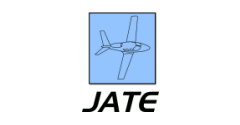Abstract
The University of North Dakota (UND) adopted unleaded aviation fuel (UL94) for approximately a four-month period in the summer and early fall of 2023. The UL94 fuel was used in all reciprocating engine fleets based at the university’s primary training airport, Grand Forks International Airport in North Dakota. During the operational implementation of UL94, the UND flew 46,600 flight hours, consuming 386,778 gallons of fuel across all fleets powered by Lycoming engines. After approximately two months of using UL94, operational reports and maintenance inspections began to indicate potential for exhaust valve seat recession (EVSR), although early indications were limited in number and could not be attributed to one specific causal relationship. After additional reports and inspections suggested a potential for a larger trend in EVSR and upon recommendation by both Lycoming and Swift Fuels, the university elected to switch back to 100 octane low-lead aviation fuel (100LL) on October 26, 2023. Post hoc analysis of engine exhaust valve tappet clearance measurements (an indication of EVSR) showed a statistically significant negative correlation to hours of UL94 usage (r = –0.52**, p < .001), suggesting EVSR developing with consumption of UL94. Additional analysis of time since overhaul, percent mix of 100LL, aircraft type, and several other metrics were performed as a part of this study. It should be noted that this publication and the UND’s decision to switch to UL94 or back to 100LL were not funded by any private or government organization and should be considered an operational case study in adoption of unleaded aviation fuel.
Recommended Citation
Wilson, Nicholas D.; Guthridge, Ryan; Wild, Brandon; Roesler, Jeremy; Kasowski, Daniel; Geinert, Nick; Terbest, Aaron; Fettig, Aaron; and Kraus, Robert
(2025)
"A Technical and Statistical Analysis of Unleaded Aviation Fuel (UL94) Adoption in a High- Volume Collegiate Aviation Environment,"
Journal of Aviation Technology and Engineering:
Vol. 14:
Iss.
2, Article 6.
Available at: https://doi.org/10.7771/2159-6670.1324
Included in
Aviation Safety and Security Commons, Environmental Health and Protection Commons, Management and Operations Commons, Operational Research Commons


